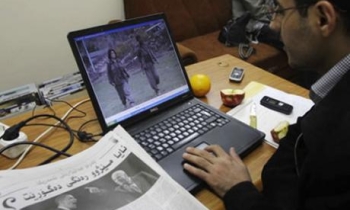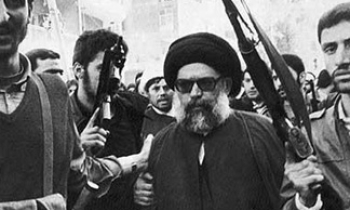Moroccan weekly TelQuel continues to bear the brunt of courts. A Casablanca court Wednesday ruled on appeal that it must pay 500,000 dirhams (50,000 euros) in damages in a libel suit brought by the director of a child aid association, Touria Bouabid.

"It is now clear that the Moroccan courts want to strangle TelQuel financially, as it was already ordered to pay an equally disproportionate fine a little more than a month ago," Reporters sans Frontières (RSF) said.
"The appeal court did, it is true, reduce the amount of damages awarded by the lower court but it is still exorbitant and more than five times the maximum damages mentioned in the press code for defamation cases," RSF said. TelQuel's lawyer said the newspaper would appeal to a yet higher court.
A lower court in Casablanca ruled on October 25, 2005 that TelQuel should pay a fine of 10.000 dirhams (915 euros) and damages of 900,000 dirhams (82,300 euros) for a report in May that Bouabid had been summoned by the police for questioning about embezzlement within her NGO.
The information came from police sources and was reported in three other newspapers as well as TelQuel - Al Ahdath Al Maghribiya, Al Ayam and Al Ousbou�ya Al Jadida. All four newspapers published retractions after the information turned out to be false, and the other three got off with minor fines.
On December 29, 2005 the Casablanca appeal court ordered TelQuel to pay 800,000 dirhams (72,000 euros) in a separate libel case.
TelQuel is one of the country's most well-known magazines. Published weekly, it regularly breaks taboos in its open coverage of all aspects of Moroccan society. The magazine made international headlines with a cover story on King Muhammad VI's salary, and has also published progressive stories on sexuality, religion, and the conflict with the Western Sahara.
When TelQuel editor Ahmed Benchemsi was in the US on a fellowship in August 2005, the Moroccan authorities used a novel technique to it shut down: a civil case of defamation where the presiding judge did not even allow TelQuel's lawyer to speak before pronouncing a fine of 1,000,000 dirham ($112,000). The judge declared that Benchemsi would have to go to jail for two months if he failed to pay the fine.
In late October 2005, TelQuel was hit with a second defamation lawsuit and another exorbitant fine of 910,000 dirhams. That was nine times more than any other newspaper ever condemned for the libel � and nine times the maximum fine ever handed down by a Moroccan judge. With a total of 1,960,000 dirhams of fines in two months, it is clear that the authorities wanted to cut down TelQuel.

An online petition said, "This is a new strategy of the Moroccan government for muzzling the growing independent press: asphyxiate it financially, by controlling judgment of banal lawsuits brought by private individuals. Through TelQuel today, it is the entire free press of Morocco which is in danger tomorrow."
Moroccan blog The View from Fez commented, " Islamic countries have been quick to point out that they support free speech and it is only religious insensativity that they object to. If the situation in regard to the offensive cartoons was not so dire, the irony surrounding Morocco's own free speech debate would be even more delicious. At least it can be hoped that the irony is not lost on those who patrol the Moroccan media."
A series of criminal cases against the Moroccan press, including criminal prosecutions of newspaper editors and the imposition of excessive fines, is posing a serious threat to the existence of independent publications in the North African country. Three journalists face possible imprisonment as a direct result of news or opinions published in their weeklies. In each case the monetary penalties are at the maximum end of what is allowed and could threaten the financial viability of a newspaper's operations.









